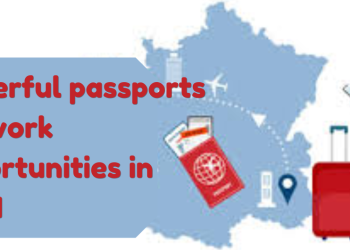Europe study application procedure should be started now, if you are planning to pursue a Bachelor’s or Master’s degree in Europe in 2025.
Known for their high-quality education and budget-friendly study expenses, Europe has been a cherished destination for the international students, especially from the developing countries in Asia and Africa for decades.
Study programs in Europe take a long procedure to complete for application purposes. Additionally, students do have to research a lot to ascertain the affordable programs aligned with their preferred study interests. Besides, in certain countries, you may have to submit your application up to 9 months in advance. Thus, you have to start early if you plan to apply for higher study in Europe in 2025.
Be prepared with all your munitions to start the admission battle in 2025
Application Due time
Across European countries, application deadlines vary significantly and may depend on whether a student visa is required. For autumn 2025 intake, deadlines may start from January 2025 (i.e. Sweden and Finland) to as late as July 2025 (Germany) or even August/September (Austria and Poland).
Europe Study Application Deadlines for the Autumn/Winter Semester 2025
A compiled list of university application deadlines in Europe for the autumn/Fall semester is provided below. These deadlines generally apply to most public universities in the respective countries:
- Austria: June to September 2025 (varies by university)
- Belgium: June 1, 2025 (EU/EEA students); February/March (non-EEA students)
- Czech Republic: February to April 2025
- Denmark: January 15, 2025 (non-EU students for Bachelor’s); March (EU students); Master’s: varies, often by January
- Estonia: March to June 2025 (earlier for non-EEA students)
- Finland: January 22, 2025 (most universities); March/April (some universities of applied sciences)
- France: February to April 2025
- Germany: July 15, 2025 (most universities); deadlines vary for visa applicants
- Hungary: February to May 2025
- Iceland: Varies by university, usually January to April 2025
- Ireland: February 1, 2025 (priority deadline for Bachelor’s); varies by university and program for Master’s
- Italy: Varies by university, generally from May to July; earlier for visa applicants
- Latvia: May/June 2025
- Lithuania: June/July 2025
- Netherlands: April 1 or May 1, 2025
- Norway: November 15 to December 1, 2024 (non-European students); March 1, 2025 (EU/EEA students)
- Poland: July to August 2025 (varies by university)
- Russia: July 2025 (beginning)
- Spain: Varies by university, from January to July
- Sweden: January 15, 2025 (registration); February 1, 2025 (submit documents and pay fee)
- Switzerland: Varies by university, generally from February to April, earlier for visa applicants
- United Kingdom: January (Bachelor’s); Clearing from July to October 2025; Master’s deadlines vary
Apart from these timelines, some private universities or specific study programs may have different deadlines, so it’s essential to research early to avoid confusing the deadlines of different universities.
Average Cost to Study at a European University:
Academic institutions in Europe have separate tuition system for citizen and international students. Comparatively, the cost is higher for non-EU students as added with other living expenses. Also, the public universities cost less than private ones given their facilities and benefits. However, such overseas tuition fees can be funded with scholarships and financial aids.
- Bachelor/undergrad program: 43,500 EUR per academic year
- Master’s Degree/Postgrad degree: 56,000 EUR per academic year
This is a general assumption made on the average cost which widely vary while calculating other expenses and financial aid facilities. Besides, students awarded with full scholarships can study for free in public institutions. Check the program or university website for more information.
Europe Study Application Fees
Application fees for university application is a big factor particularly for international students coming from developing countries. Nonetheless, it should not be a barrier in the process. As a matter of fact, universities usually wave that fee for a candidate well-suited for their program. Moreover, students with financial hustles can apply in universities with no application fee as there are many. Some of the no-application fees universities in Europe are:
- University of Vienna, Austria
- Ludwig Maximilian University of Munich, Germany
- University of Oslo, Norway
- University of Warsaw, Poland
- University of Bergen, Norway
Yocket, a reliable site can help in this regard.
Required Documents Needed for Europe Study Applications
By the application deadline, you will generally need to submit the following documents:
- Curriculum Vitae (CV)
- Degree certificates or grade transcripts
- Cover Letter
- Proof of English proficiency (usually IELTS or TOEFL)
- Passport or national ID copy
- Recommendation letters from relevant people
- Academic reference letters (sometimes required)
- Program-specific documentation
In some cases, you may submit certain documents after the deadline, as long as the application itself is submitted on time. Always check the admissions guidelines for specific requirements.
Late Applications if spots are available
All the universities request for prior application to meet official deadlines, however, some universities accept late applications based on qualifications and recommendations. This is an exception case mostly as applications received after application portal is closed may not get reviewed usually.
Even some countries (i.e. Sweden and Finland) have early deadlines, many offer a second round of admissions if there are still available spots. Similarly, Estonia, Latvia, Lithuania, and Germany usually allow applications until June or July. Austria and Poland sometimes accept applications just before the semester begins.
Now what if you miss the deadline? If you miss the application deadline, you may still be able to apply. Here’s what to do:
- Visit the University Website or the country’s application system website for information on late applications.
- Contact the university directly to inquire if late applications are accepted. Do not go into details about missing deadlines.
- Once guaranteed about late application acceptance, prepare your documents quickly and submit them.
- Choose alternative universities that may accept late applications, as many well-ranked universities actually do that across Europe.
Fix the visa procedure as soon as you are informed about the academic program admission. Follow embassies or university guidelines for visa application submission.
Concluding remarks, studying at a prestigious European university with scholarships is a dream for many meritorious international students. However, many struggle to fulfill their academic aspirations due to disordered submission procedures. This article has attempted to help students seeking guidance on Europe study applications for 2025. Start your research and preparation now, you will receive the fruit of your hard work and patience in the coming year. Hopefully, you will earn the best you deserve.





















